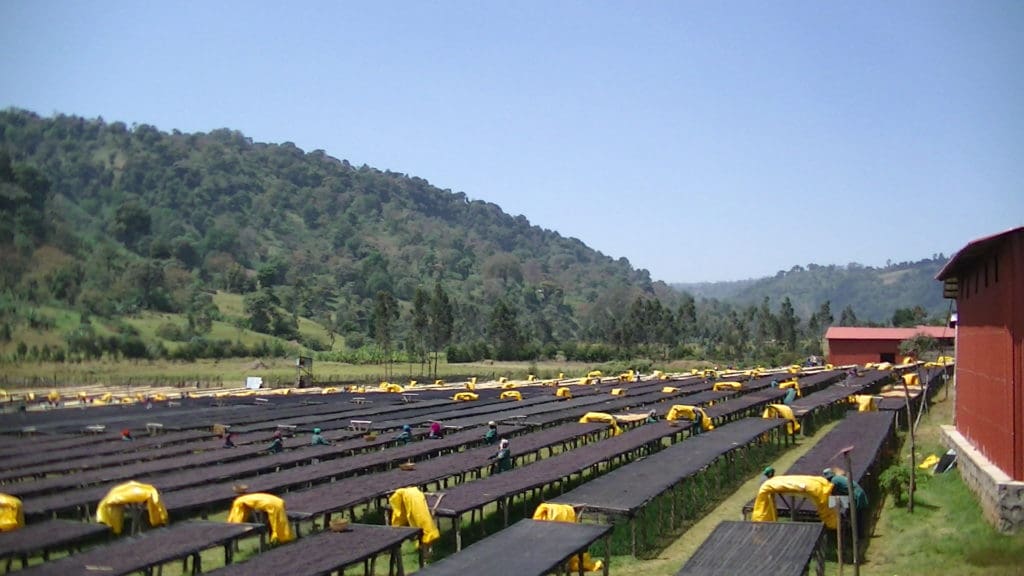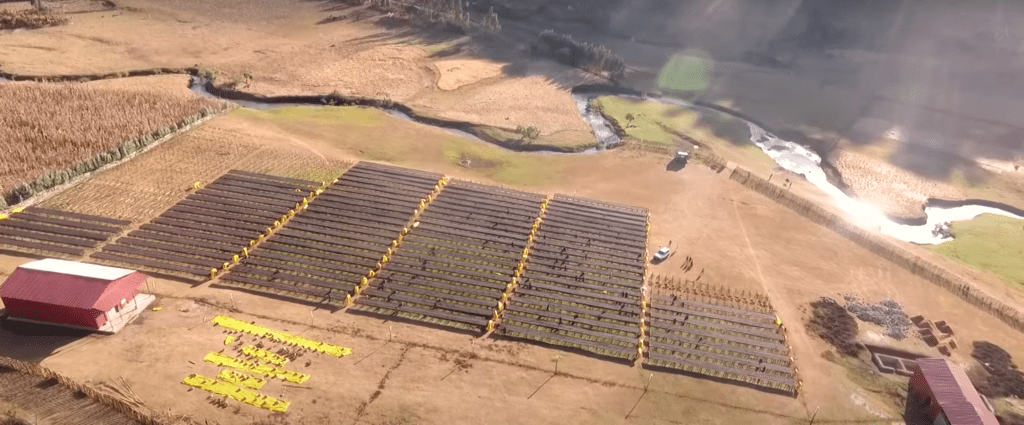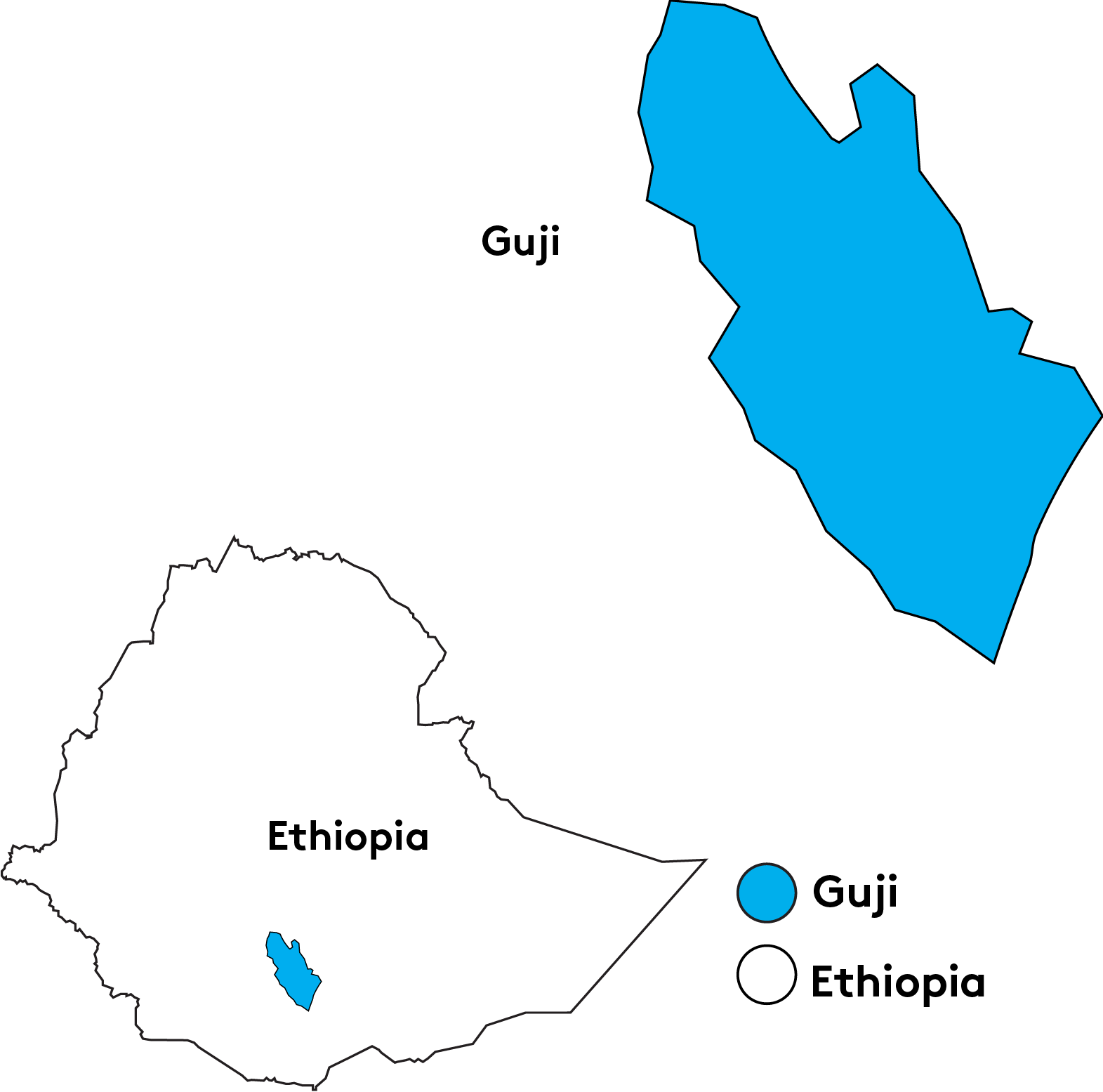The Buku washing station is named for the kebele, or village, where the coffee is harvested. The growers from the surrounding community bring their cherries to this washing station at METAD’s 200 hectare farm in Hambela for further processing.
Our partners at METAD developed their Out-growers Program in 2013. METAD is a family run business, with coffee at their roots for generations. They wanted to invest and support nearby coffee growing communities through this program, which has grown to over 6,500 memberships across both regions in Hambela and Gedeb. There are currently 14 farmer associations, named after their kebele, with 7 in each region. Growers who are part of the program receive training from METAD’s team from the start. They are provided free seedlings and professional guidance at every stage of production, as well as pre and post harvest training to continue their professional development.
This coffee from the Buku kebele is grown at an elevation between 1900-2250 meters. It is a natural process, sun-dried on raised beds allowing the fruit of the coffee cherry to dry on the seed developing a sweet complexity. An organic coffee, METAD has certified its own farms and processing plants but also the farms of those participating in the out-grower’s program.
METAD’s values are driven by the community and environment. They reinvest a portion of their profits back into the community for initiatives that include building clinics, funding the local elementary school, and constructing wells as a source for drinking water. They are committed to environmental sustainability, practicing protection methods in wet processing to avoid ground and water pollution and including intercropping farming techniques and crop pollination.
Learn more about Ethiopia’s Coffee Regions.


